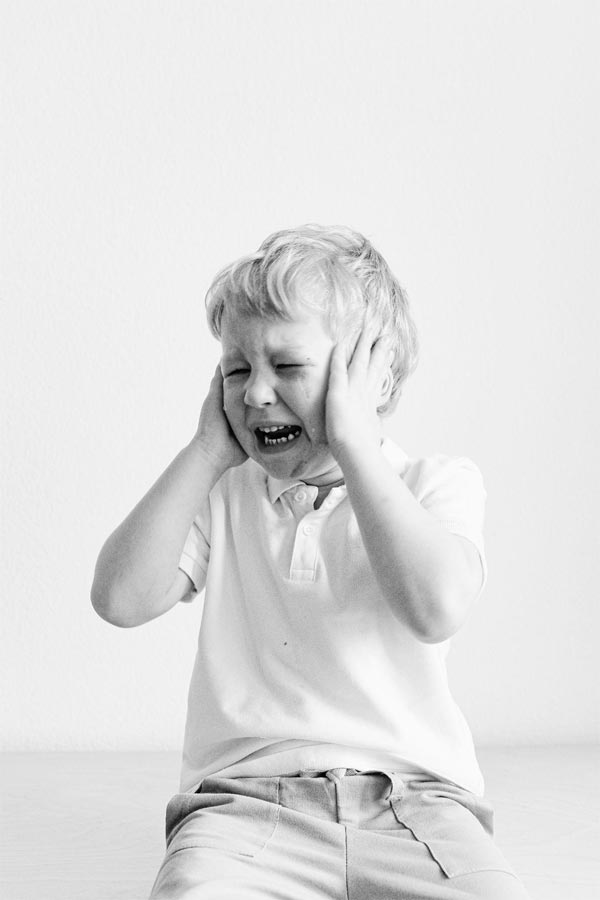
How to resolve allegations of abuse or neglect. Family Court and Child Welfare: A Journey of Self-Reflection and Growth
In the shadows of life’s complexities, facing allegations of abuse or neglect and undergoing scrutiny by the child welfare system can be one of the most harrowing experiences a parent can endure. The open case in Family Court, coupled with the constant monitoring, can evoke a whirlwind of emotions – from feeling harassed to being engulfed in shame and defensiveness. It’s a scenario where one’s parenting skills are not just questioned, but starkly challenged.

Embarking on this journey, it’s not uncommon to feel falsely accused. The notion that someone could question your abilities and intentions as a parent strikes at the very core of your identity. The embarrassment and defensiveness that follow are natural reactions, yet they often cloud the potential for personal growth and understanding.
It’s crucial to recognize that while these proceedings may seem invasive or unfair, they are, in most cases, rooted in a system’s commitment to ensure the safety and well-being of children. This realization does not mitigate the discomfort, but it can provide a perspective that transforms a defensive stance into one of openness to self-improvement.
The idea of humbling oneself isn’t about admitting guilt or conceding to accusations; it’s about recognizing that all of us, regardless of our situation, have room for growth. Engaging in sincere self-reflection allows one to evaluate personal strengths and weaknesses. This process, though challenging, can be immensely rewarding.

Being open-minded to the suggestions made by state social workers and court officials is another crucial step. Often, these professionals recommend programs aimed at personal improvement, such as anger management, parenting courses, domestic violence prevention, mental health counseling, or various forms of therapy. While initially, these suggestions may feel like impositions or judgments, they offer valuable opportunities for learning and personal development.
Participating in these programs does not imply that one is deficient or failing as a parent; rather, it shows a willingness to embrace personal growth for the betterment of oneself and, importantly, for the children involved. Consider that no harm can come from acquiring new skills or insights – the outcomes are inherently positive.
Moreover, engaging actively and openly with these resources often positively influences the perception of your commitment and responsibility in the eyes of the court and welfare systems. It demonstrates a proactive approach to addressing concerns, which can be beneficial in legal and personal contexts.
Navigating the family court system and child welfare scrutiny can feel like a relentless storm. But within this storm lies an opportunity for personal transformation and growth. By embracing humility, open-mindedness, and a commitment to self-improvement, this challenging journey can lead to a more profound understanding of oneself as a parent and an individual. In the end, the journey is not just about navigating the legal and social challenges but about emerging stronger, more aware, and better equipped to face the complexities of parenthood and life.

For those navigating the challenging waters of Family Court proceedings and child welfare monitoring, seeking support and guidance is not just beneficial; it’s often a turning point. This is where Applied Behavioral Sciences (ABS) comes into the picture as a beacon of hope and transformation. At ABS, individuals can access a range of therapeutic services specifically tailored to address issues such as anger management, parenting difficulties, and other personal challenges that might impact family dynamics.
ABS has built a reputation for excellence in providing evidence-based therapeutic interventions. Their approach is grounded in cognitive behavioral therapy (CBT), which is known for its effectiveness in bringing about meaningful and positive change in behavior. For parents grappling with allegations of neglect or abuse, or those simply seeking to enhance their parenting skills, ABS offers a supportive and non-judgmental environment where they can learn, grow, and evolve.
The success stories emanating from ABS are both inspiring and profound. Thousands of individuals have walked through their doors feeling overwhelmed, misunderstood, and often hopeless, only to emerge as significantly improved parents and, more importantly, as better, more self-aware individuals. The transformative journeys experienced at ABS are not just about meeting the requirements of a court case or appeasing a social worker; they’re about profound personal growth and self-improvement.
Many clients of ABS express deep gratitude for the support and guidance they received. They often share how the journey of working on themselves, though challenging, has been incredibly rewarding. The skills and insights gained through ABS’s programs have enabled them to foster healthier family relationships, manage their emotions more effectively, and approach parenting with increased confidence and competence.

For anyone interested in embarking on this journey of personal betterment and family healing, accessing ABS’s services is straightforward. A visit to their website, Applied Behavioral Sciences, provides an entry point to a range of resources and programs tailored to meet diverse needs. The site outlines the various therapeutic options available, offers insights into their approach and methodologies, and provides easy ways to get in touch and begin the process of change.
ABS’s commitment to helping individuals and families overcome challenges and improve their lives is evident in the positive outcomes and testimonies of those who have utilized their services. By providing a supportive environment focused on personal growth and development, ABS plays a crucial role in helping many navigate their way to becoming better parents and better individuals. The journey may be demanding, but the rewards of personal betterment and family harmony are immeasurable.
Learn More
The Link Between Nutrition and Anger: How Food Affects Your Mood
Have you ever noticed that what you eat can impact your mood? It’s not just a coincidence; there is a strong connection between nutrition and emotions. One emotion that is particularly influenced by our dietary choices is anger. In this blog, we will explore the fascinating relationship between nutrition and anger, and how the foods you consume can either fuel or calm your temper.
The Basics of Nutrition and Emotion
To understand how food affects our emotions, it’s important to recognize that our brain and body are intricately connected. The nutrients we consume play a vital role in the production of neurotransmitters, hormones, and other chemicals that influence our mood and behavior. When we eat, our bodies break down the food into these essential components, which are then used to regulate various emotional responses, including anger.

The Blood Sugar Rollercoaster
One of the most significant ways in which food impacts anger is through blood sugar levels. When you eat foods high in refined sugars and carbohydrates, your blood sugar spikes, leading to a rapid release of insulin. This rollercoaster of blood sugar levels can result in mood swings, including increased irritability and anger.

To maintain stable blood sugar levels and a more even-keeled mood, it’s essential to choose complex carbohydrates like whole grains, fruits, and vegetables over sugary snacks and processed foods. These complex carbs provide a steady source of energy and help prevent the sharp spikes and crashes that can lead to anger outbursts.
The Influence of Nutrient Deficiencies
Nutrient deficiencies can also play a role in anger and irritability. For example, low levels of certain vitamins and minerals, such as vitamin D, B vitamins, and magnesium, have been linked to increased levels of anger and aggression. These nutrients are involved in the production of neurotransmitters like serotonin and dopamine, which play a crucial role in regulating mood.

To ensure you’re getting an adequate supply of these essential nutrients, maintain a balanced diet that includes a variety of foods. If necessary, consult with a healthcare professional to address specific deficiencies.
The Gut-Brain Connection
Another intriguing aspect of the nutrition-anger connection is the gut-brain connection. Emerging research suggests that the composition of your gut microbiome, which is influenced by your diet, can impact your mood and emotions. A healthy gut is associated with better emotional well-being, while an imbalanced gut microbiome can contribute to feelings of anger and irritability.
To support a healthy gut, incorporate probiotic-rich foods like yogurt, kefir, and fermented vegetables into your diet. Fiber-rich foods can also promote gut health and support your overall emotional well-being.

Foods That Can Calm Anger
Now that we’ve discussed how certain dietary choices can contribute to anger, let’s explore foods that can help calm your temper:
- Fatty Fish: Omega-3 fatty acids found in fish like salmon, mackerel, and sardines have anti-inflammatory properties and may help reduce anger and irritability.
- Leafy Greens:
Foods like spinach and kale are rich in magnesium, which can have a calming effect on the nervous system. - Berries: Antioxidant-rich berries like blueberries and strawberries can help combat oxidative stress and improve mood.
- Nuts and Seeds: Almonds, walnuts, and chia seeds are good sources of healthy fats and nutrients that support brain health.
- Herbal Teas: Chamomile and lavender teas are known for their calming properties and can help soothe frayed nerves.

In conclusion, the connection between nutrition and anger is a complex and fascinating one. The foods you choose to eat can have a profound impact on your mood and emotions. By making mindful choices and prioritizing a balanced diet rich in nutrient-dense foods, you can better regulate your emotions and cultivate a calmer, more peaceful state of mind. Remember, a healthy body often leads to a healthy mind, so nourish yourself with care and intention.
If you have issues of anger that have sometimes become uncontrollable you should seek help from a qualified mental health professional like the doctors and counselors at ABS Applied Behavioral Sciences at absbehavioralhealth.com

Learn More

The Crucial Role of Early Therapeutic Intervention in Preventing Juvenile Sex Offending
The issue of problematic juvenile sexual behavior is a sensitive and challenging one. Addressing it effectively is not just a matter of legal consequences; it is a moral and societal imperative. Early therapeutic intervention plays a pivotal role in preventing the progression of sex offending among juveniles. In this article, we will explore the importance of identifying and addressing problematic juvenile sexual behavior through therapy and support.
Understanding the Problem
Problematic juvenile sexual behavior refers to a range of inappropriate sexual behaviors exhibited by minors. These behaviors can include sexual aggression, exhibitionism, voyeurism, and other harmful actions. While it is essential to recognize that not all juveniles who engage in problematic sexual behaviors will become sex offenders, early intervention is crucial to prevent the escalation of such behaviors.

The Risk of Progression
Research has shown that without appropriate intervention, problematic sexual behaviors in juveniles can escalate over time. Juveniles who exhibit these behaviors may lack understanding of boundaries, empathy, and the consequences of their actions. If left unaddressed, these behaviors can evolve into more serious offenses, potentially leading to a life of criminal sexual activity.
Benefits of Early Therapeutic Intervention
1. Preventing Recidivism: Early therapeutic intervention significantly reduces the likelihood of reoffending. By addressing the root causes of problematic sexual behaviors, therapy can equip juveniles with the necessary tools to manage their impulses and make healthier choices.
2. Promoting Rehabilitation: It is essential to view juveniles who engage in problematic sexual behaviors as individuals in need of help and rehabilitation rather than as hardened criminals. Therapy provides a safe and supportive environment for these young individuals to work through their issues and develop prosocial behaviors.
3. Enhancing Public Safety: By intervening early, society can better protect potential victims from harm. Early intervention reduces the chances of these juveniles progressing to more severe sexual offenses, thereby safeguarding the community.
4. Understanding Causes: Therapeutic intervention allows professionals to assess and understand the underlying causes of problematic sexual behavior. This knowledge is invaluable for tailoring treatment plans that address the specific needs and challenges of each individual.
5. Supporting Families: Early intervention involves not only the juvenile but also their families. Providing support and guidance to parents and guardians helps them understand and manage their child’s behavior more effectively.
Challenges and Considerations
While early therapeutic intervention is crucial, there are challenges to implementing effective programs. These include limited resources, stigmatization, and the need for specialized training for professionals working with juvenile offenders. However, the long-term benefits of preventing the progression of sex offending among juveniles outweigh these challenges.

Conclusion
Early therapeutic intervention is a vital component of preventing the progression of problematic juvenile sexual behavior to more serious sex offenses. It offers hope, rehabilitation, and a chance for young individuals to lead healthier, more productive lives while safeguarding the well-being of potential victims and the community at large. As a society, it is our responsibility to recognize the importance of early intervention and provide the necessary support and resources to address this complex issue effectively.
Learn More

How to Control anger as a parent
Being a parent is no easy task. The responsibilities, the emotional support, and the sacrifices that it takes are all a pretty heavy load to take, especially when you have to deal with raising a child.
There can be stressful times with children, who surely have compassion but have not yet developed the necessary understanding.
Subsequently, Parents get all sorts of emotions from their children during their time together. These emotions come in different forms such as anger, stress, and frustration, or sometimes just plain sadness or depression depending on the child’s nature and personality.
You as a parent will have to respond to these emotions in a certain way, and sometimes, you might find yourself feeling the same kinds of emotions as your kid, like frustration or anger especially if you live under other forms of stress in your life.
It’s not easy to be a parent. You have to balance your own needs with the needs of your family, which means making sacrifices all the time. That can be hard to do if you are struggling with anger issues, in this case, you would be putting your children at risk of developing their own problems down the road.
The best thing you can do for them is to seek help now to avoid those kinds of complications later on. because your number one goal as a parent is to provide your children with a healthy stress-free environment in which they can flourish and grow up to be healthy adults.
When it comes to dealing with anger towards children, it’s important to remember that these feelings aren’t always directed at the child itself; sometimes they’re directed at circumstances outside of your control. It’s okay for you as a parent to acknowledge these frustrations, but it’s not okay for you to take them out on your child!
Take a step back, breathe deeply, and try to understand what’s behind it
Anger is a natural part of life. We all have moments where we feel angry. The key is to not let those moments define who you are or how you interact with the world around you.
When your child does something that makes you angry, try taking a step back and thinking about it. Ask yourself, what might have led up to this situation? Sometimes kids act out because they’re tired or hungry or just want attention from an adult (even if it’s negative!) it’s that simple, always remember that those mini humans are not as complicated emotionally as adults. If they’ve been playing with new toys recently, maybe some of those pieces got lost under
furniture or thrown into another room accidentally during cleaning time…
After taking a step back, breathe deeply for 10 seconds or so. This will help you calm down so you don’t act out in harmful ways toward your kids! A split-second outrage can cause a lifetime of trauma for your child, and a lifetime of guilt and regret for you!
Try to recognize it for what it is—a simple emotion. So don’t let it control you or make you act in ways that might affect your kids or yourself. Sometimes we get so caught up in our frustrations with our kids that we forget to look at why we’re frustrated in the first place. Trying to understand what’s behind it, though, makes it much easier for us to deal with our anger constructively.
Once you’ve figured out what’s causing your anger, try taking some steps toward solving the problem at hand. If possible, talk with someone else about what happened (even if they’re not involved) so they can help guide you through this process or give advice on how best to deal with it.
Remind yourself that your child is still learning
It’s hard not to get frustrated with your child when they’re struggling to learn at home. But remind yourself that your child is still learning and that they need your help and patience more than anything, in their perspective you’re the god- like creature that provides for them and helps them in every situation, your anger and impatience can cause a lot of confusion for them. remember that They’re trying their best, but they’re not quite there yet.

Remind yourself of this when you’re in the middle of a fight with your child. Remind yourself that they are trying, but they don’t know any better yet. They are trying to be better people than they were yesterday, or last year, or even yesterday morning when you told them not to leave their shoes on the couch again and they did it anyway because they didn’t listen then either!
They’re just kids! We all had those moments where we thought we knew everything and then realized we didn’t know anything at all—and now we’re here with our own little ones who are going through the same thing.
Your children don’t have all the skills they need yet and can’t always understand what will make other people happy or sad—and vice versa! This doesn’t make them bad people; it just means they need more time and practice before they can really get it right all the time. You too will make mistakes as a parent and as a teacher, but that doesn’t mean you’re a failure. The most important thing is to use those mistakes as opportunities for growth and improvement.
Take time out of your day to do something else that makes you happy
You are a parent. You love your kids. They are the best parts of your life. But sometimes, they drive you up the wall! It’s easy to get angry at our kids—you’re tired, they’re tired, and you don’t know what to do next. But getting angry is not going to help anyone.

One effective way to deal with anger towards your children is by taking time out of your day to do something else that makes you happy. This could be anything—a walk around the block, reading a book, playing with a friend’s dog or cat (if you’re lucky enough to have one). It doesn’t take long for us to regroup and come back refreshed and ready for whatever life throws at us next! You don’t need to be perfect all the time, and neither do they. Just remember that there are other ways of handling anger besides yelling at your children.
Don’t take it personally
You’ve probably noticed that when your child acts out in some way, you get upset. You might even start to believe that your child does things just to make you angry. But the truth is, kids don’t have much control over their behavior; they just act out at the moment. It’s not personal! Sometimes they do things just because they’re kids—not because they’re trying to make us angry!
Try not to assume bad intentions when they misbehave; instead, focus on what caused them to act out in the first place (e.g., hunger, boredom) and address the root cause instead of just the symptoms (e.g., going out for dinner or playing a new game).
We also want to remind you that you can’t control everything your children do. They’re going to go through phases where they explore the world, learn new things, and try new ways of doing things—and sometimes those experiments result in some pretty frustrating moments for their parents! Parents need to remember this and try not to take these situations too personally.
Avoid physical force and threats
The use of physical force or threats is not appropriate in any situation when disciplining a child. Although it may seem like a quick fix for the problem, this type of discipline can actually cause more harm than good.

When the child feels that he or she has been threatened, this may cause the child to feel fearful of his or her parents. When this happens, it can cause a rift in the relationship between parent and child which can make it difficult for them to communicate effectively with one another later on, and plant the seeds that emotional barriers grow from.
Using physical force may make it difficult for the child to trust his or her parents again. This could cause problems down the road when they need help from their parents or other trusted adults in their life.
Additionally, when parents use physical force or threats, they teach their children that it is acceptable to use violence against others. If a parent hits a child with a belt, they are teaching the child that violence is an acceptable form of communication. This type of behavior will not only cause damage within the family unit but to the community in the larger frame as well. We know that dealing with an angry child is frustrating and exhausting. We also know that you want to do the right thing, but even so, the physical response should always stay out of the question, as it always makes things worse.
When to seek help?
Life can be harsh sometimes, and when it does it won’t care if you have kids or not. Living under a considerable amount of stress makes dealing with kids a lot harder than it already is. To the point where things start getting out of hand and you risk causing serious harm to yourself or your kids. That’s when you should take responsibility and seek professional help. Counseling, psychotherapy, or psychological treatment, can be a great help for you to overcome your anger issues and take some of the pressure off your shoulders. Institutions like ABS Applied Behavioral Sciences has tremendous experience dealing with such problems. With the most qualified team of doctors, psychotherapists & counselors ABS Applied Behavioral Sciences has helped over the years hundreds of thousands of people overcome extreme impulsive behaviors, mainly impulsive anger, aggression, sexual behavior, eating, shopping, gambling, and domestic violence. The comprehensive treatment programs that ABS Applied Behavioral Sciences applies, helps its patients take back control of their lives.
Cherish the beautiful things in your life
Children are the most precious gifts we can receive in this world. They give us the opportunity to experience love, joy, and happiness on a level that is impossible to describe. They are innocent and pure, and their minds are like sponges. that’s why we must be careful about what we say and do around them. And we have to do our best to provide the healthiest environment for them to grow up normally.

Learn More
